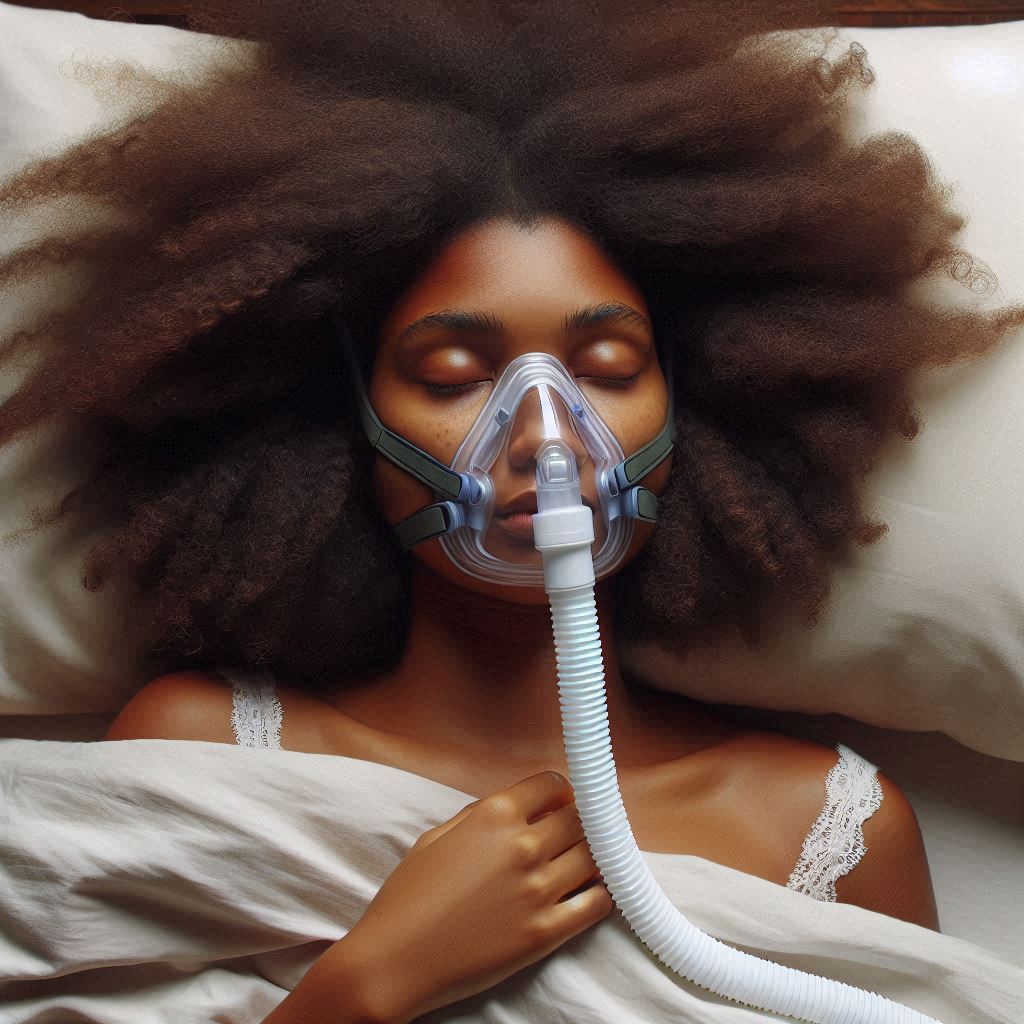
by Tara E. l March 19, 2025
Introduction
Sleep apnea in Black women is a serious but often overlooked health issue. Have you ever felt constantly exhausted, even after a full night’s sleep? Do you snore loudly or wake up gasping for air? If so, you might have sleep apnea, a condition where breathing repeatedly stops and starts during sleep. This leads to poor rest and serious health risks, including high blood pressure, heart disease, diabetes, and memory problems.
For Black women, the danger is even greater. Research shows that Black women are more likely to have sleep apnea, yet they are far less likely to be diagnosed or treated. Why? A mix of biology, environment, and healthcare barriers all play a role. Let’s dive into what makes sleep apnea in Black women a silent health crisis and what can be done about it.
Listen to the Rooted Will, Rising Advocate Podcast Episode Sleep Apnea in Black Women: What You Need to Know
What is Sleep Apnea?
Sleep apnea is a condition where a person’s breathing stops and starts repeatedly during sleep. There are two main types:
- Obstructive Sleep Apnea (OSA): The most common type, caused by blocked airways.
- Central Sleep Apnea (CSA): When the brain fails to send proper signals to the breathing muscles.
Sleep apnea leads to poor sleep, daytime fatigue, and serious health risks, including high blood pressure, heart disease, diabetes, and memory problems. But why are Black women more at risk?
Why Black Women Face a Higher Risk
1. Biological Factors
- Airway Structure: Studies suggest that Black women may have naturally smaller airways or larger tongues, which can make airway blockages more common.
- Weight and Metabolism: While not all people with sleep apnea are overweight, obesity increases the risk. Black women have higher obesity rates due to genetics, diet, and limited access to healthy foods and exercise opportunities.
- Sleep Patterns: Research shows that Black women are more likely to wake up frequently during sleep, making sleep apnea symptoms worse.
2. Environmental and Social Factors
- Chronic Stress and Racism: Constant stress affects the body and can contribute to weight gain, high blood pressure, and poor sleep—all risk factors for sleep apnea.
- Noisy or Unhealthy Neighborhoods: Many Black women live in areas with loud noise, bright streetlights, and poor air quality, all of which make getting quality sleep harder.
- Limited Healthcare Access: Many Black women don’t have easy access to specialists, making it harder to get tested or treated for sleep apnea.
3. Misdiagnosis and Lack of Awareness
- Doctors Overlook Symptoms: Many doctors associate sleep apnea with older, overweight men. When a Black woman reports fatigue, she may be misdiagnosed with stress or depression instead of sleep apnea.
- Women Have Different Symptoms: While men with sleep apnea often snore loudly, women may have symptoms like headaches, light sleep, and exhaustion—signs that can be dismissed as anxiety or aging.
- Few Sleep Studies: Sleep studies are the best way to diagnose sleep apnea, but Black women are less likely to be referred for one.
The Health Consequences of Untreated Sleep Apnea
Ignoring sleep apnea can lead to major health problems, including:
- High Blood Pressure & Heart Disease: Lack of oxygen strains the heart.
- Diabetes & Weight Gain: Sleep apnea disrupts metabolism, making weight loss harder.
- Memory Problems & Dementia: Poor sleep affects brain health.
- Pregnancy Complications: Pregnant Black women with sleep apnea face higher risks of gestational diabetes, preeclampsia, and premature birth.
What Can You Do?
🔍 Know the Symptoms: If you snore, wake up gasping, or feel constantly tired, talk to your doctor.
🩺 Get Tested: Ask for a sleep study—it can be done at a sleep clinic or even at home!
😴 Explore Treatment Options: CPAP machines, oral devices, weight management, and lifestyle changes can all help improve sleep apnea.
🏥 Advocate for Your Health: If your doctor dismisses your concerns, don’t be afraid to seek a second opinion.
💬 Talk About It: Share this information with other Black women. The more we know, the healthier we can be!
Final Thoughts
Sleep apnea is a silent but serious health threat for Black women. Too many go undiagnosed, leading to dangerous health risks. The good news? Sleep apnea can be managed with awareness, testing, and the right treatment. Your health matters—don’t ignore the signs! Take action today if you or a loved one are struggling with sleep. Prioritizing your rest is prioritizing your life!
More from Mahogany Speaks to You

Sleep Apnea and Pregnancy: Protecting Black Mothers and Babies
Read more…COMING SOON

The CPAP Problem: Why Black Women Struggle with Treatment
Read more… COMING SOON

Beyond Snoring: How Sleep Apnea Harms Your Health
Read more…COMING SOON